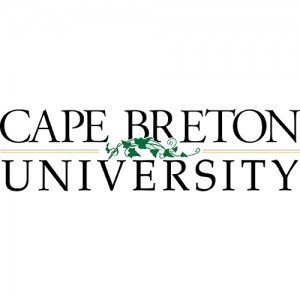Photos of university / #youbcpic
The Food, Nutrition, and Health — Food Market Analysis program at The University of British Columbia in Vancouver offers a comprehensive exploration of the dynamic and complex world of food markets, consumer behavior, and nutrition policies. Designed for students interested in understanding the intersection of food systems, market trends, and public health, this program provides in-depth knowledge of food industry economics, sustainable practices, and nutritional science. Throughout the program, students will examine the factors influencing food choices, the impact of global trade on food security, and the strategies used by businesses and policymakers to promote healthy eating. Emphasizing research, critical analysis, and practical skills, the curriculum covers areas such as food marketing, consumer preferences, food regulation, and emerging trends in food innovation. Students will engage with industry experts, participate in real-world projects, and explore case studies that highlight current challenges and opportunities within the food sector. Graduates of this program will be equipped with the analytical tools and knowledge necessary to pursue careers in food marketing, market research, policy development, or consultancy roles within the food and nutrition industry. The program’s multidisciplinary approach ensures that students gain a balanced understanding of scientific, economic, and social aspects of food markets, preparing them for leadership roles in promoting sustainable and nutritious food systems worldwide. With access to UBC’s state-of-the-art facilities and vibrant academic community, students will develop a global perspective on food issues and be well-positioned to contribute to innovative solutions that enhance public health and food security globally.
The Food, Nutrition, and Health — Food Market Analysis program at The University of British Columbia offers students a comprehensive understanding of the dynamic food industry landscape with a focus on market trends, consumer behavior, and strategic decision-making. This program is designed for individuals interested in exploring the intersection of food science, nutrition, and market analytics to develop expertise in analyzing food markets and driving innovation within the industry. Throughout the program, students will gain a solid foundation in nutritional science, food product development, and the economic factors influencing the food sector. They will learn how to evaluate market opportunities, analyze consumer preferences, and develop strategies for successful food product launches.
The curriculum combines theoretical knowledge with practical skills, including data analysis, marketing research, and business planning. Students will undertake coursework in food systems, nutritional assessment, supply chain management, and food marketing strategies. Emphasis is placed on understanding contemporary issues such as sustainable food production, food safety, regulatory environments, and global food trends. The program encourages hands-on learning through case studies, projects, and internships with industry partners, providing students with real-world experience in market analysis and product development.
Graduates of this program will be equipped to pursue careers in food marketing, market research, product development, consulting, and food policy analysis. They will be prepared to work in various sectors, including food manufacturing, retail, government agencies, and consultancy firms, contributing valuable insights to improve food quality, consumer satisfaction, and industry competitiveness. With an emphasis on critical thinking and strategic insight, the Food, Nutrition, and Health — Food Market Analysis program aims to cultivate professionals capable of leading innovation and driving growth in the food industry while promoting health and sustainability.
The Food, Nutrition, and Health — Food Market Analysis program at The University of British Columbia is designed to equip students with a comprehensive understanding of the global food industry, including market dynamics, consumer behavior, and the economic aspects of food production and distribution. The program emphasizes the development of analytical skills necessary to evaluate market trends, conduct consumer research, and interpret data relevant to food marketing and policy making. Core coursework includes topics such as food systems, nutrition science, food policy, marketing strategies, and sustainability practices. Students are required to complete a combination of coursework, practical projects, and possibly internships to gain hands-on experience in the field.
The program typically requires students to participate in seminars, workshops, and case study analyses focused on current issues affecting the food industry, such as organic food trends, food safety regulations, dietary guidelines, and the impact of globalization on local food markets. To graduate, students must accumulate a specified number of credits, usually through a mix of lectures, tutorials, independent research, and group projects. Prerequisites might include a background in health sciences, business, or social sciences, although specific entry requirements are subject to change.
Additional requirements may involve language proficiency in English, submission of application materials, and references. The program aims to prepare graduates for careers in food marketing firms, governmental agencies, non-profit organizations, and consulting firms specializing in food industry analysis. Overall, the program provides a robust foundation in market analysis with a focus on food systems and nutritional impacts, fostering a multidisciplinary approach to understanding and addressing challenges in the food market sector.
The Food, Nutrition, and Health — Food Market Analysis program at The University of British Columbia offers a variety of financing options for prospective students. Tuition fees for domestic students are typically in the range of CAD 6,000 to CAD 8,000 per year, depending on the specific course load and residency status. International students may expect higher tuition fees, approximately CAD 20,000 to CAD 30,000 annually, reflecting the university’s standard rates for international undergraduate programs. In addition to tuition, students should budget for ancillary costs such as textbooks, supplies, health insurance, and housing. The university provides several financial aid options, including entrance scholarships, merit-based awards, and need-based bursaries, which can significantly reduce the financial burden. Many students also consider applying for government student loans and grants, both at the provincial and federal levels, which are available to eligible students to assist with tuition and living expenses. UBC's Financial Aid and Awards Office offers detailed guidance and application support for various funding programs. In some cases, students may access external funding sources, including private scholarships and industry sponsorships, particularly for specialized fields like food market analysis and nutrition. Part-time employment opportunities on campus or nearby can also help students manage their finances while studying. The university encourages early application for financial aid to maximize the chances of securing funding. Furthermore, some programs may have partnership agreements with companies in the food industry, which could provide internship stipends or co-op work placements that help offset costs and provide valuable professional experience. Overall, financing studies in this program involves a combination of personal funds, scholarships, government assistance, and potentially earnings from part-time work, making it accessible to a diverse range of students interested in food market analysis and nutrition.
The Food, Nutrition, and Health — Food Market Analysis program at The University of British Columbia in Vancouver offers students a comprehensive understanding of the dynamic food industry, with a particular focus on market analysis within the food and nutrition sectors. This program is designed to equip students with both theoretical knowledge and practical skills necessary to analyze food markets, understand consumer trends, and develop strategic solutions for industry challenges. It covers key topics such as food supply chain management, consumer behavior, nutritional science, food policy, and the economic aspects of food markets. Students gain insights into global food systems and develop critical thinking skills to interpret market data, assess industry feasibility, and contribute to sustainable food production and distribution. The program emphasizes interdisciplinary learning, integrating principles from nutrition science, business management, and economics to prepare graduates for diverse roles in the food industry. Through case studies, industry projects, and internships, students are encouraged to apply their learning in real-world settings, fostering a strong understanding of current market trends and innovations. Graduates from this program are well-equipped to pursue careers in food marketing, product development, policy analysis, consultancy, and research within both the public and private sectors. The curriculum aligns with contemporary issues such as food security, health promotion, and the transition to sustainable food systems. By combining scientific expertise with market analysis skills, the program aims to produce professionals capable of making impactful contributions to the food industry, ensuring that food products are not only nutritious but also aligned with market needs and consumer preferences.





